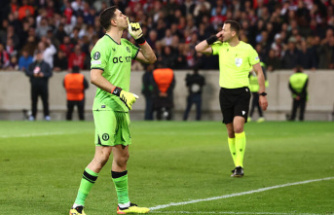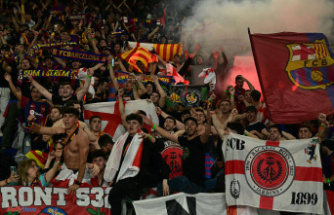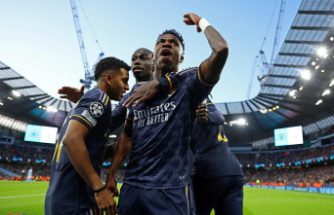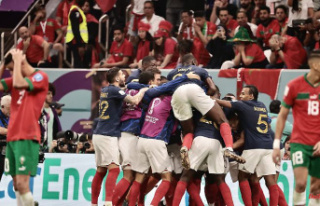It remains unclear how many people lost their lives in Qatar in the run-up to the World Cup. Five deaths were documented at the tournament itself. In addition to three journalists, two workers die. A "model construction site" shows that with personal responsibility anything is possible.
The World Cup quarter-final game between the Netherlands and Argentina is ill-fated. Two people lose their lives after accidents at Lusail Stadium. In addition to the sudden death of the renowned US football journalist Grant Wahl, who died of a ruptured aortic aneurysm (enlargement of the main artery) with a hemorrhage in the pericardium, security guard John Njue also died. He falls from a "significant height" after the game and dies in hospital three days later.
Five deaths have already been documented during the tournament. These are three journalists and two workers. In addition to Wahl, the Qatari photojournalist Khalid al-Misslam and Roger Pearce, the technical director of the British TV channel ITV Sport, also died. In addition to Njue, a man apparently from the Philippines dies as a result of an accident during repair work at the Saudi Arabian team hotel. Five. That's an amazing number after four weeks of the World Cup in Qatar.
According to the organizer, only three workers died on the World Cup construction sites in previous years. He cold-heartedly regrets every single death of a worker. In the course of the tournament, the numbers are suddenly corrected upwards to 400 to 500 for a short time. But soon there is a new explanation why this number does not only refer to the World Cup. Unsurprisingly.
For a long time, the dominant criticism of Qatar has been the inhuman treatment of those who risk their lives and health to build the venues and infrastructure for the tournament - the migrant workers from Bangladesh, Nepal and India. Before that there are allegations of corruption, later the lack of women's rights and also the host country's relationship with members of the LGBTQ community.
Homosexuality is nothing more than "mental damage," says a World Cup ambassador in a ZDF documentary recorded well before the start of the tournament. It will be broadcast just a few days before the start of the World Cup. It is escalating the already raging "Boycott Qatar" movement in Germany. Other European countries are also moving further away from the biggest tournament in world football. The camel's back has long since overflowed, and the boycott ultimately caused TV ratings to plummet in Germany.
This is also an issue in Qatar. The fans and journalists who have traveled from non-European countries keep wondering how it could have happened. They say that "Europeans have to learn that the world doesn't just revolve around them" and also feel sorry for Germany. "The tournament is only every four years. You don't have to flog yourself," she says, and the tournament just goes on. Dissatisfaction with the corrupt football system is not always in the foreground, as the jubilant pictures from Argentina show.
However, despite all the criticism and lack of understanding for the European positions, the excesses of modern football have led to that very Qatari capitalism, at the center of which is the complete disappearance of the individual. For every worker who died in connection with the World Cup, there are already ten new queues, as can be seen from the crowds that have gathered in Doha.
In conversations, they talk about life in their homeland and how they experience an appreciation of their existence in the conditions that are described as pathetically too positive for European conditions. The workers from Bangladesh, Nepal, India, the Philippines and the workers from the African states are present everywhere in the cityscape, they are the filling material that makes Doha a never-sleeping entity.
Late at night they sit in front of the never-ending cafés and small supermarkets. They drink tea during the break and then go back to the construction sites where they work at night to escape the heat. The ban on daytime work is one of the improvements in workers' rights claimed by Qatar. As can be observed on walks through Doha, Qatari capitalism otherwise teaches them to take personal responsibility.
As in the past in the collieries of the Ruhr area, a number of warnings can be seen at a construction site near the central hub of the city, the Msheireb train station, which is described as model construction site. "Meet the person responsible for your safety" is written above a mirror in the entrance area, next to which is a sign saying "Safety is everyone's responsibility".
Just a few meters further into the construction site area, a sign encourages the workers: "No accidents must be the goal." An information board with the most important safety instructions teaches: avoid heat, drink plenty of water, be careful with defective power cables, protect yourself from drills and saws flying around and always remember that a "near miss today" could be an accident tomorrow. One that, in the worst case, adds another number to the death count.












